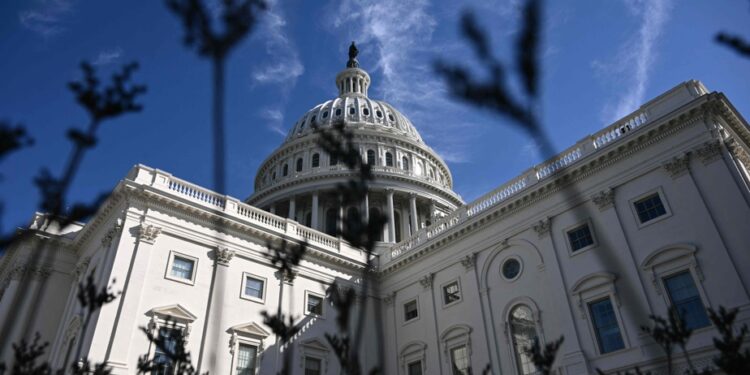(Washington) Republicans and Democrats alike in the United States are counting the blows on Thursday, the day after the end of the longest budgetary paralysis in the history of the United States, and at the same time a bitter fight which will leave its mark on both parties.
After more than 40 days of impasse, eight Democratic senators finally gave in at the beginning of the week to put an end to the budgetary paralysis. Many on the left have lamented their decision, seen as an abandonment.
But with Donald Trump in power, and in control of both houses of Congress, most elected Democrats knew that they had little chance of achieving their claimed objective, with the extension of subsidies for “Obamacare”, which makes it possible to offer health coverage to millions of Americans with modest incomes.
While they should be celebrating their electoral victories last week, Democrats find themselves quarreling publicly, with many elected officials and supporters pointing the finger at party leaders for their lack of effectiveness in opposing Donald Trump.
They can, however, console themselves with another, more strategic price: the attention of the American public is now more focused on the theme of the cost of health, and the cost of living in general. An asset for the opposition, one year before the mid-term elections of November 2026.
Contrasted assessment
“This will force the Republicans to reveal their game” on these health issues, estimates political analyst Donald Nieman at AFP. According to him, the subject has been their weak point “for 15 years”.
For the moment, on the right, we are delighted with a political success: weak concessions in exchange for the end of budgetary paralysis and internal dissensions largely avoided.
Politically, the results are more mixed. In most polls, more Americans polled blame the ruling party than the opposition for the budgetary paralysis.
“A year from now, no one will be voting with shutdown in mind. But they will vote on the cost of living,” underlines political consultant Andrew Koneschusky, former press advisor to Senate Democratic leader Chuck Schumer.
The blockage created “a real political risk for the Republicans and gave momentum to the Democrats on a central issue,” he believes.
Donald Trump, for his part, emerges from the budget fight with the image of a president who – broadly speaking – does not budge from his position. The billionaire has generally remained above the fray in Congress, and today taunts his opponents.
“He thought he could break the Republicans, and it was the Republicans who broke him,” he said Monday on Fox News, about Chuck Schumer.
Another paralysis to come?
But the clash leaves the 79-year-old president with a gaping wound: Despite his long-standing complaints against “Obamacare” and his promises to create a better health insurance system, he still has no established plans on the issue.
Opinion surveys show that his approval rating is at its lowest since the start of his second term in January, with a drop of five points in the last two weeks according to DDHQ, to almost 42%.
Americans hate budgetary paralysis. And with more than a million civil servants deprived of pay for six weeks, social assistance frozen, and air traffic severely disrupted, the latest served as a painful reminder.
However, the United States could well experience a repeat in a few weeks, since the budget agreement adopted on Wednesday only provides for financing the State until January 30.
Without a new agreement, a new “shutdown” would occur.
“So who won?” Nobody,” said the Punchbowl News media on Thursday, specializing in American Congressional affairs.
“This record “shutdown” will have been bad for the country, bad for the economy, and particularly bad for Congress as an institution,” he summarizes.



